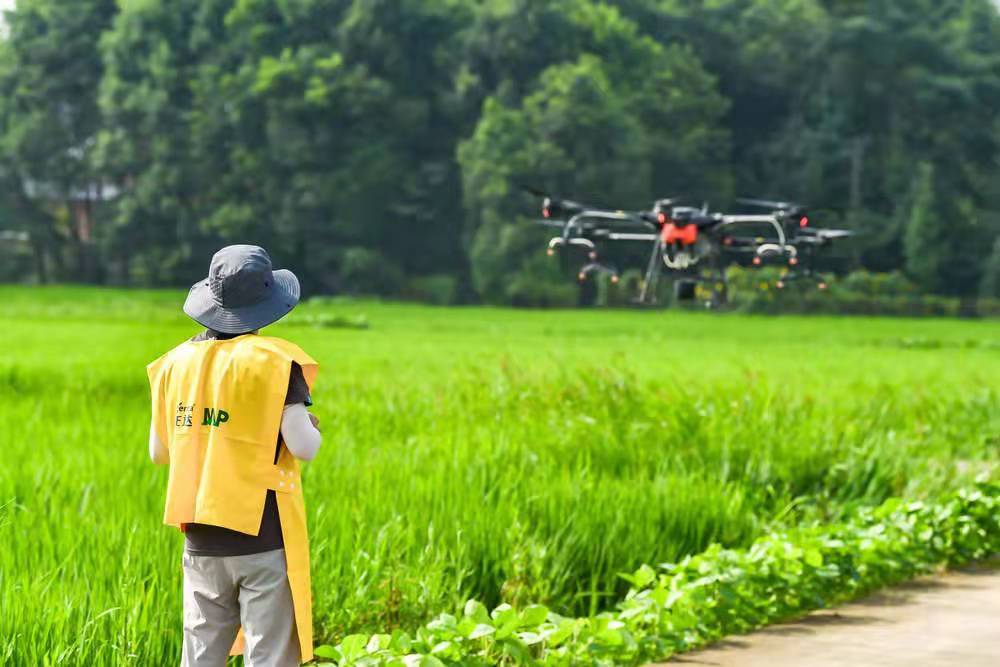Syngenta stays committed to 'greening' agriculture


Syngenta Group, the seeds, crop protection and nutrition product manufacturer, plans to improve soil health and improve carbon sequestration on at least 2 million hectares of farmland by 2023 – about 2 percent of the country's farmland, its global head said.
The initiative is part of the Run Tian program, jointly developed with the Nature Conservancy, the Ministry of Agriculture and Rural Affairs, the United Nations Development Program and Syngenta Group China.
"Syngenta Group and our partners are encouraging farmers to not burn leftover straw in their fields and incorporate their straw and crop leftovers into the soil," said Erik Fyrwald, the group's CEO.
The company has reached more than 100,000 farmers to date, helping to reduce local carbon emissions by an estimated equivalent of a half million metric tons of CO2.
"All our efforts are aimed at helping farmers deal with challenges posed by various complex situations in agricultural production, making the food system more resilient and ensuring global food security in China," he said.
Syngenta group currently invests up to $2 billion a year across its business units for research to help farmers not only adapt to climate change, but become part of the solution to climate change.
Through its Modern Agriculture Platform, Syngenta Group China has guided and supported farmers via modernizing their farms, connecting them to premium buyers, offering education and training and facilitating access to machinery and end markets.
Syngenta Group China to date has established 413 MAP centers across China, and the number will continue to grow, Fyrwald said, adding these centers adhere to the concept of green and sustainable development and have the mission of "making modern agriculture benefit more farmers and consumers".
Apart from developing products that lower the chemicals needed to control weeds and insects, the company is also finding ways for organic farms, which create a lot more CO2 per acre than land cultivated by traditional methods, to both greatly lower their emissions and produce healthy foods.
In addition to securing grain security and tackling environmental issues in the area of agriculture, China has to feed a growing and increasingly wealthy population demanding better and more nutritious food, said Wang Xiaobing, director of the information center of the Ministry of Agriculture and Rural Affairs.
"Based on burgeoning technologies like the internet of things, big data and cloud computing, China's agricultural sector will enter into a high quality and digital development period," he said.
- Syngenta Group China VP: Accelerate building of system to safeguard agriculture
- Syngenta to grow presence in China with new agricultural products
- The China Flower Expo blossoms with success
- Digital technologies key to modernization of farm ecosystem
- China to push restructurings of central SOEs in 2020




































